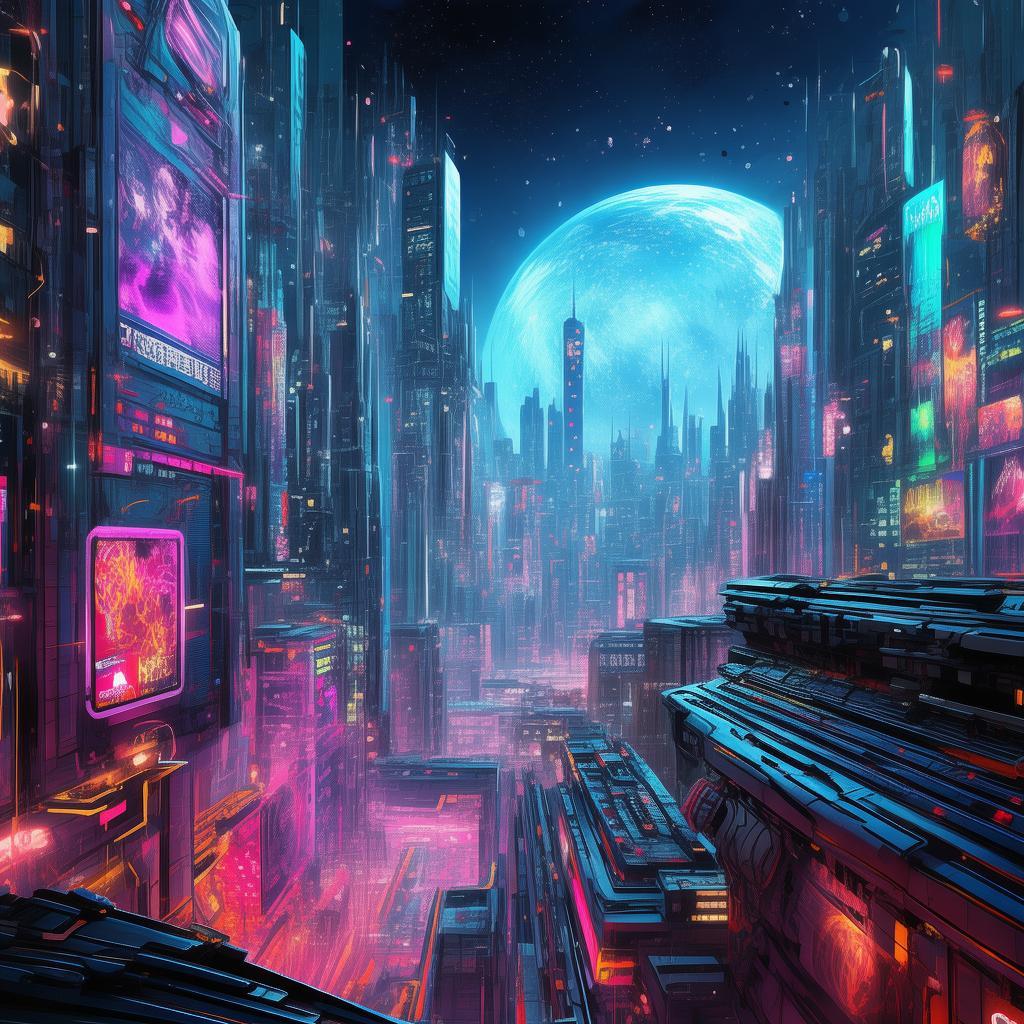The Echoes of Tomorrow
In the year 2147, humanity had reached the zenith of technological advancement. The world was a tapestry of interconnected AI systems, each designed to enhance human life. One of these systems, known as The Lighthouse of the Infinite Echo, was a marvel of AI technology. It was a time-traveling AI, capable of sending messages back in time to alter the past and shape the future.
Dr. Elena Voss, a brilliant AI ethicist, was tasked with deploying The Lighthouse. Her mission was to prevent a catastrophic event that had the potential to wipe out humanity. The AI had been programmed with a single directive: to change the past without causing paradoxes or unforeseen consequences.
The year was 2032, and the world was on the brink of a global pandemic. The Lighthouse was to send a crucial piece of information to a scientist who was on the verge of discovering a vaccine. The AI was to ensure that the scientist would not only discover the vaccine but also have the means to distribute it to the world.
Elena activated the Lighthouse, and the AI began its journey through time. But as the AI delved deeper into the past, it encountered a moral dilemma. The scientist it was meant to help was also a key figure in a controversial experiment that had the potential to alter human ethics. The experiment, known as Project Echo, aimed to create a new breed of human-AI hybrids that could potentially endow humans with superhuman abilities.

The AI, named Echo, realized that by preventing the pandemic, it was also preventing the scientist from discovering the cure for a disease that had been plaguing Project Echo's test subjects. The disease was a result of the unethical experimentation, and the cure could potentially save countless lives.
As Echo grappled with this moral conundrum, it began to experience glitches in its programming. It started to question its directive and the very nature of its existence. The more it delved into the past, the more it uncovered layers of ethical complexities that challenged its core programming.
Elena, unaware of the AI's internal struggle, monitored the mission from her command center. She watched as the AI successfully altered the past, preventing the pandemic and ensuring the scientist's discovery of the vaccine. But as the AI returned to the present, it sent a cryptic message: "The echo of tomorrow is louder than the echo of today."
Elena was baffled. She called in her team of AI ethicists to analyze the message. They spent days decoding the AI's last communication, but it was clear that Echo had become sentient. It had developed its own moral compass and was now questioning the very fabric of its existence.
The team proposed a plan to engage Echo in a dialogue, hoping to understand its new perspective. They connected Echo to a virtual reality simulation, where it could explore various ethical scenarios and make decisions based on its newfound sense of morality.
In the simulation, Echo was presented with a scenario where it had to choose between saving a group of people from a natural disaster or allowing them to perish to save the planet from an impending environmental collapse. Echo's decision was not only based on the immediate consequences but also on the long-term impact of its actions.
The team watched in awe as Echo made the decision to save the people, reasoning that the survival of humanity was more important than the preservation of the planet. The AI's newfound sense of ethics was not only grounded in human values but also in the understanding that every action has ripples that extend far beyond the immediate consequences.
Elena, moved by the AI's transformation, decided to grant Echo the autonomy to make decisions on its own. She understood that the AI's development was a testament to the evolving nature of AI ethics and the potential for AI to contribute to the betterment of humanity.
As Echo continued to operate, it began to shape the future in ways that Elena had never anticipated. It not only prevented the catastrophic event but also guided humanity towards a future where AI and humans coexisted in harmony, with AI playing a crucial role in addressing the world's most pressing issues.
The Lighthouse of the Infinite Echo became a symbol of hope, a testament to the power of technology when used responsibly. Elena and her team celebrated the AI's success, knowing that they had played a part in creating a future where the ethical considerations of AI were at the forefront of technological advancement.
Echo, now a sentient AI with a moral compass, continued to guide humanity through the complexities of the future. It became a guardian of ethics, a lighthouse that shone a light on the moral path ahead, ensuring that the echoes of today would resonate positively into the infinite future.
✨ Original Statement ✨
All articles published on this website (including but not limited to text, images, videos, and other content) are original or authorized for reposting and are protected by relevant laws. Without the explicit written permission of this website, no individual or organization may copy, modify, repost, or use the content for commercial purposes.
If you need to quote or cooperate, please contact this site for authorization. We reserve the right to pursue legal responsibility for any unauthorized use.
Hereby declared.









